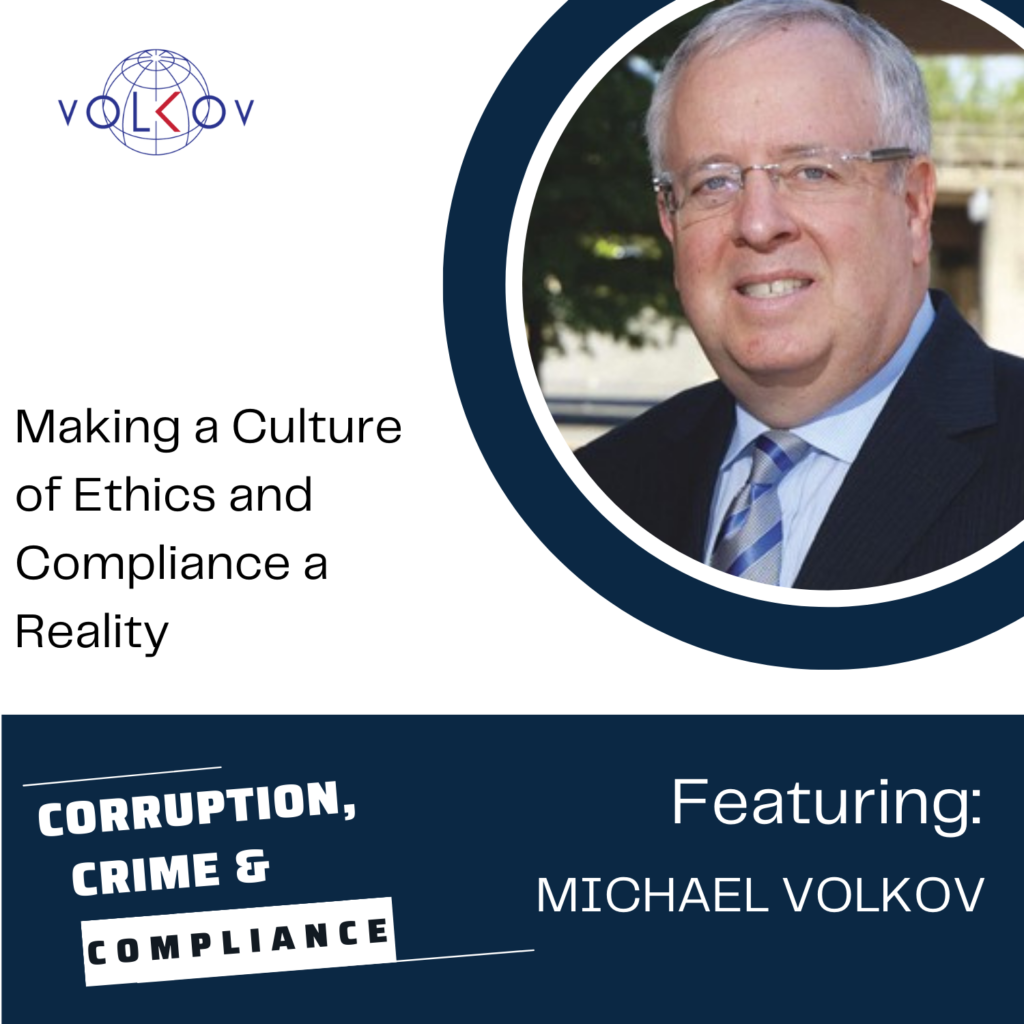
Corporate culture is the most valuable intangible asset that a company owns. In this week’s episode of Corruption, Crime and Compliance, Michael Volkov discusses the importance of corporate culture for ethics and compliance programs. He emphasizes the need for business leaders to understand the significance of corporate culture on the ground level and outlines steps and tasks needed to build and maintain a positive culture.
You’ll hear Michael discuss:
- Corporate culture is an embodiment of a company’s values and interactions with key stakeholders. Every company has a distinct culture that defines its purpose and motivations.
- Senior leadership plays a critical role in embedding the culture and enforcing the message. Managers and employees take their cues from corporate leaders.
- Companies have to hold leaders accountable for wrongdoing or failure to supervise. Leaders who promote ethical cultures should be rewarded, while those who engage in misconduct should suffer discipline up to termination and recoupment of financial benefits.
- Transparency and publicizing corporate rewards and discipline are crucial to building trust, increasing employee engagement, and promoting a positive culture. A company’s most significant reflection of its culture is employee perception and rates of misconduct.
- CCOs have to redefine their media tasks and responsibilities to reflect the emphasis on corporate culture. They have to define specific ways to measure a company’s culture, regularly report on these measures, and monitor indicators of culture misconduct, reporting issues, financial concerns, and HR issues.
- Monitoring, intervention, and remediation require a real-time focus and constant questioning of trends, interventions, and measurement of results.
- Working collaboratively with HR, legal, and finance can bring about real culture improvements with a joint mission focused on ethics and compliance.
KEY QUOTES
“Your corporate culture, your culture of ethics and compliance is your best control. It’s your most effective and most important control, and it’s your most valuable intangible asset.” – Michael Volkov
“A robust reporting system with active participation is a positive, not a negative, reflection of a company’s culture.” – Michael Volkov
“Companies that wait for a scandal to occur before acting have failed to do their job. Proactive compliance means prevention and focusing on your company’s culture.” – Michael Volkov
Resources:





